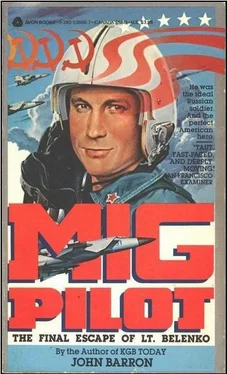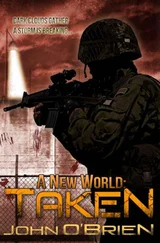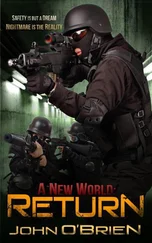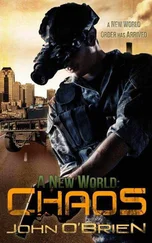His father retrieved him in September and in effect appointed him housekeeper of their room on the second floor of a frame apartment building housing employees of the Altai truck factory in Rubtsovsk. His duties included some shopping, preparing a cold supper, cleaning the room, keeping the coke fire burning, and hauling water twice daily from a well about 150 yards down the street. Straining with the pails of water, he remembered the kolkhoz and in a few days built a yoke that enabled him to carry two buckets simultaneously. After slipping on winter ice, he constructed a crude, yet serviceable sled to transport water and other cargo. He did not object to the chores any more than he had minded the work on the farm. Rather, from them he gained a sense of partnership and worth, and he prided himself in their accomplishment.
His father went out often in the evening and on Sundays to visit women, and they talked mostly during supper or while playing chess (which, by unspoken agreement they quit after Viktor started winning easily). Only once did his father ever discuss his future with him. “You will find your own way in life. I have no friends or relatives in the Party who can help you. I cannot give you money to buy your way out of Rubtsovsk. If you wish a life different from mine, you can find the way only through education. The war took away my opportunity for an education. You still have a chance.”
Viktor needed no encouragement. Schooling excited him from the outset and offered, so he thought, the opportunity to learn the answers to all questions about life. And it was through school that he sought an answer to the first question about Soviet life that ever seriously troubled him.
In wartime desperation, the Russians had quickly transfigured Rubtsovsk from a placid market town into a raw, roaring industrial city by transferring factories threatened by the Germans in the west. The forced industrialization was effected mainly by prison labor, and a web of concentration camps developed around the city. Although many camps were closed after Stalin died, those around Rubtsovsk remained, and their inmates were utilized in industrial construction with something akin to wartime urgency. Barbed-wire fences, watchtowers, and lights were erected around construction sites, and shifts of prisoners, or zeks, as the Russians called them, were trucked in to keep the work going twenty-four hours a day.
Viktor first sighted some zeks while leaning into a stinging wind on the way to school. They were shivering and huddled against one another for warmth inside wire cages on the back of trucks, guarded by Central Asians clad in heavy sheepskin coats and armed with submachine guns. The thin cloth coats, painted with white numerals; the canvas boots; the cloth caps partially covering their shaved heads — all were ragged.
He had seen people in dirty, tattered clothes before. Never had he seen eyes so vacant. There was no expression; it was as if he were looking at men whose minds and souls had died while their bodies continued to breathe. The concept of political prisoners was unknown to him. Criminals were criminals, and he was sure that each of the gaunt trembling, hollow figures he saw must have done something terrible. Yet he cried out to himself, Kill them! Kill them or set them free! I would not treat a rat like that. I would rather die than be in a cage.
His recurrent vision of the zeks subsequently caused him to wonder: Why are they so rejected? What made them that way? In tune, as schools taught him the verities of Marxism-Leninism, he felt he understood. Man, political instructors emphasized, is but the product of his social and economic environment. Capitalism, although a necessary stage in human evolution, created an inherently defective socioeconomic environment based on selfishness, greed, and exploitation of the many by the few. Given such a defective environment, defective human behavior was inevitable. The criminality, alcoholism, acquisitiveness, indolence, careerism, and other aberrant behavior that admittedly persisted in the Soviet Union to some limited extent were merely the malignant remnants of capitalism.
Viktor still pitied the zeks but now understood them for what they were — unfortunate victims of the lingering influences of decaying capitalism. Although the past could not be altered, nor their plight remedied, the misery they personified eventually would end with the advent of True Communism.
Shortly before Viktor’s tenth birthday his father married a co-worker, the widow of a friend killed in an assemblyline accident. They moved in with her, her mother, sixty-eight, son, six, and daughter, three. She owned a house, a real stucco house consisting of three rooms and a kitchen, well built by her late husband and his relatives on a small parcel of land her parents had been permitted to keep. The outhouse was only a few paces away in the backyard, and the well less than a minute’s walk down the block.
The stepmother was a plump, shapeless woman of thirty-five, slightly cross-eyed, and she wore her lusterless hair swept straight back into a tight little bun, a style that emphasized the plainness of her face. Formerly a teacher, she managed both her accounting job at the factory and the household well, for she was by nature efficient, industrious, and, Viktor thought, conniving. He disliked her instantly and, while treating her civilly, gave her no cause to be fond of him.
Despite his father’s admonitions, he addressed her formally as Serafima Ivanovna, refusing ever to call her Mother or even Serafima. One Sunday their soup contained meat which he perpetually craved, but he said nothing when his eye caught her deftly ladling out larger portions of meat into the bowls of her own children. Always he had asked his father for spending money to buy a hockey stick, soccer ball, books, or whatever. Now his father required that he ask Serafima Ivanovna, and usually she declined, politely explaining that the family budget at the moment could not accommodate any frivolities.
Looking for a pencil after school, he found some of her papers and records, studied them, and made a discovery. She was maintaining two bank accounts. Into one she put all of his father’s salary and part of her own for general family use; into the other she sequestered some of her salary for the separate benefit of her children. That evening Viktor confronted her with his findings, and during the shouting, abusive argument that ensued, their mutual animosities spilled out. In front of the family Viktor’s father took off his belt and flogged him furiously for three or four minutes until his own exasperations were spent. Maybe Viktor could have stopped it sooner, had he cried, but he did not.
The next day he enlisted a schoolmate into a compact to run away, south to the sunshine and orchards of Tashkent. Eluding railway police, then an aged conductor, they slipped aboard a train just as it started to roll out of the Rubtsovsk station. The train, however, was headed north, and they got off at a station some fifty miles away. As they attempted to sneak onto a southbound train, police grabbed them by their collars, dragged them into the station, interrogated and beat them. Unable to verify their false identities, authorities interned them in a detention center for orphans and delinquents pending investigation. The second night they escaped into the countryside by scaling a barbed-wire fence and hid on a kolkhoz for a few days before venturing back to the railroad station. There the police again caught them, beat them, and dragged them back to the center. Some three weeks later Viktor’s father arrived to bring him home. He was calm. “I cannot stop you from running away. But if you do it again, they will put you in reform school. That is like a prison, and once you have been there, you will never be the same. Think about it; you must decide.”
Читать дальше












